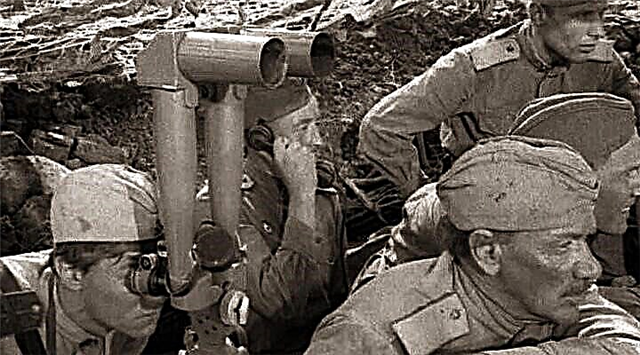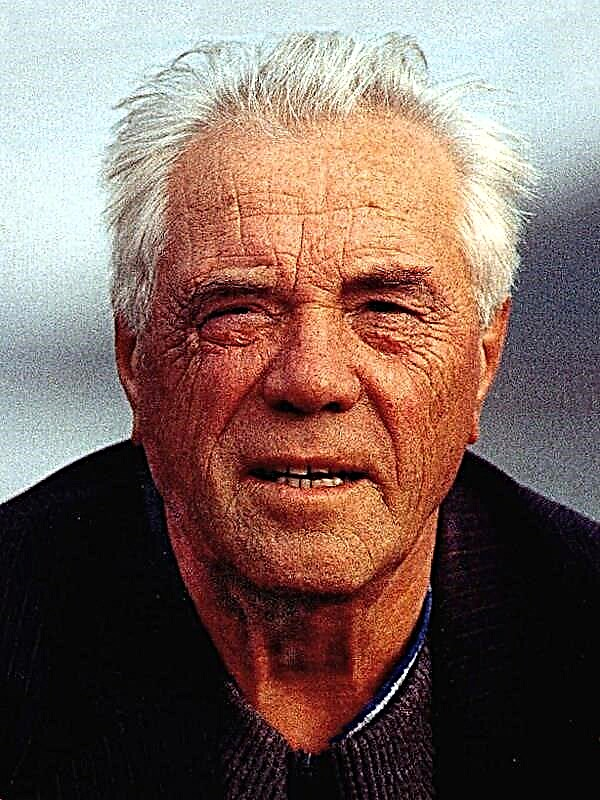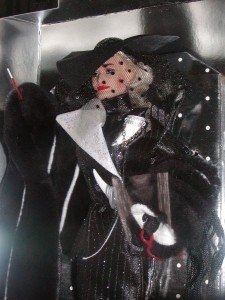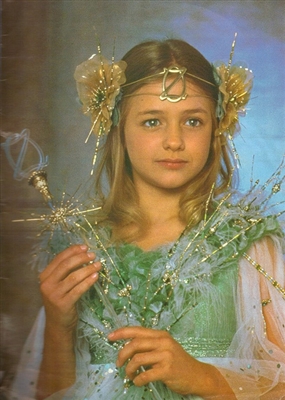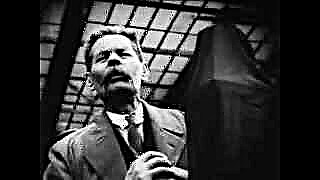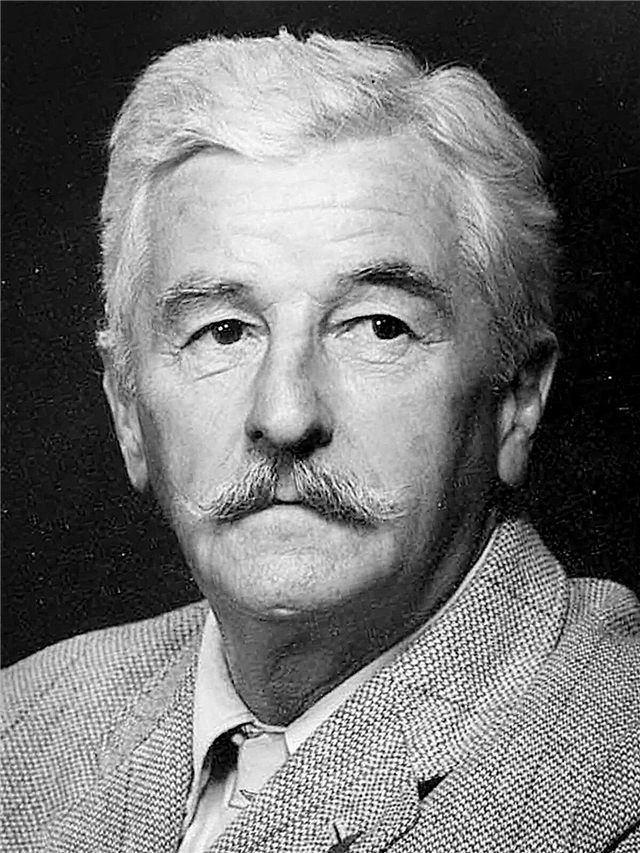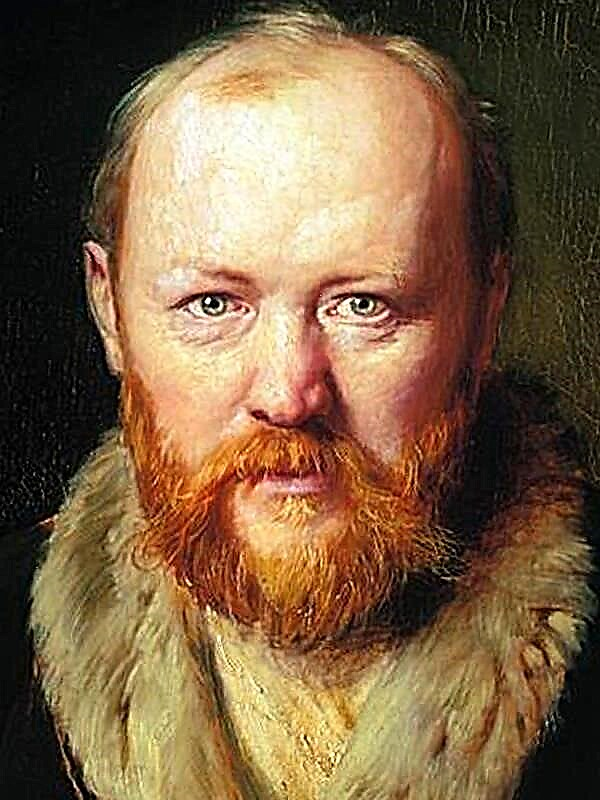"Life is a story told by a nerd, full of noise and rage, but devoid of meaning." To retell this story differently than it was originally told, means to try to tell a completely different story, except that the people acting in it will bear the same names, they will be bound by the same blood ties, they will become participants in events similar to what happened in the lives of those first; events are not the same, but only somewhat similar, for what makes an event an event, if not a story about it? Could any trifle be so many events how many times in different ways told about him? And what, in the end, is this event that no one has told and about which, accordingly, no one knows?
The Compson family was one of the oldest and at one time the most influential in Jefferson and his district. Jason Compson and his wife Caroline, a girl Basque, had four children: Quentin, Candacey (all but her mother called her Caddy), Jason and Mori. The youngest was born a fool, and when - he was about five years old - it became completely clear that he would remain a meaningless baby for life, in a desperate attempt to deceive fate, he was renamed Benjamin, Benji.
The earliest vivid memory in the life of children was how on the day of the grandmother's death (they did not know that she had died, and generally had little idea of what death was) they were sent to play away from home, on a stream. There, Quentin and Caddy began to splatter, Caddy drenched her dress and smeared her pants, and Jason threatened to get her parents out of bed, and Benji, then Mori, cried because it seemed to him that Caddy - the only creature close to him - would feel bad. When they arrived home, they began to take them to the children's half, so they decided that their parents had guests, and Caddy climbed a tree to look into the living room, and the brothers and Negro children looked down at her and her soiled pants.
Benji was in the care of the negroes, children, and then the grandchildren of Dilsey, the constant servant of the Compsons, but only Caddy really loved and knew how to calm him down. As Caddy grew older, gradually turning from a little girl into a woman, Benji cried more and more. He did not like, for example, when Caddy began to use perfume and she began to smell in a new way. He cried out loud and once stumbled upon Caddy when she cuddled with a guy in a hammock.
Quentin was also troubled by her sister's early adulthood and her novels. But when he tried to warn him, to admonish her, it turned out to be very unconvincing for him. Caddy answered with a calm, firm consciousness of her own right. A little time passed, and Caddy seriously met with a certain Dalton Ames. Realizing that she was pregnant, she began to urgently look for her husband, and here Herbert Head just turned up. Mrs. Compson, the young banker and handsome man who had come to court perfectly, was deeply disgusted with Quentin, especially since Quentin, studying at Harvard, learned the story of Herbert being expelled from a student club for cheating. He begged Caddy not to marry this scumbag, but she replied that she would certainly marry someone.
After the wedding, having learned the whole truth, Herbert refused Caddy; she ran away from home. Mrs. Compson considered herself and the family irrevocably disgraced. Jason, Jr., only got angry at Caddy in the belief that she had deprived him of the place Herbert promised him in his bank. Mr. Compson, inclined to deep thought and paradoxical conclusions, as well as to whiskey, took everything philosophically - in conversations with Quentin, he repeated that virginity is not something that exists, that it is like death - a change that is felt only for others, and, thus, nothing but the invention of men. But Quentin was not comforted: he thought that it would be better for him to commit incest, he was almost sure that he had committed it. In his mind, obsessed with thoughts about his sister and about Dalton Ames (whom he had the opportunity to kill when, having learned about everything from Caddy, he tried to talk to him and he calmly held out a gun to Quentin in response to threats), the image of Caddy obsessively merged with his sister- the death of St. Francis.
At that time, Quentin's first year at Harvard University was just drawing to a close, where he had been sent with the proceeds from the sale of a pasture adjacent to the Compson’s home to a golf club. On the morning of the second of June 1910 (this day dates to one of the four “stories” of the novel), he woke up with the firm intention of finally making his plans, shaved, put on his best suit and went to the tram stop, buying two irons along the way. A faddish black man, nicknamed Deacon Quentin, handed a letter to Shreve, his roommate (he sent a letter to his father in advance), and then got on a tram that goes out of town to the river. Quentin got a little adventure here because of a little Italian girl who had beaten him up with a bun: her brother accused Quentin of the abduction, he was arrested, but quickly released, and he joined the company of students - they testified in his favor, - out by car for a picnic. With one of them - a self-confident rich small, handsome womanizer - Quentin unexpectedly got into a fight when he began to tell how famously he treats the girls. To change his blood-stained clothes, Quentin returned home, dressed, and went out again. Last time.
Two years after Quentin's suicide, Mr. Compson died - he did not die from whiskey, as Mrs. Compson and Jason mistakenly believed, because they do not die from whiskey - they die from life. Mrs. Compson vowed that her granddaughter, Quentin, would not even know the name of her mother, forever disgraced. Benji, when he matured - only in body, since he remained a baby with his soul and mind - had to snatch after attacking a schoolgirl passing by the Compson's house. Jason talked about sending his brother to a madhouse, but Mrs. Compson strongly objected to this, insisting on the need to bear her cross, but at the same time trying to see and hear Benji as little as possible.
In Jason, Mrs. Compson saw her only support and joy, she said that he was not one of her children, not born into the Compsons with their infected madness and death, but into the Bascoms. As a child, Jason showed a healthy craving for money - glued to sell kites. He worked as a clerk in a city shop, but the main source of income for him was not service, but ardently hated - for a niece who was not received in the bank of her mother’s groom.
Despite Mrs. Compson's ban, Caddy once appeared in Jefferson and offered Jason money to show her to Quentin. Jason agreed, but turned everything into a cruel mockery - the mother saw her daughter for only one instant in the crew window, in which Jason rushed past her at a furious speed. Later, Caddy began to write letters to Quentina and send money - two hundred dollars every month. Jason sometimes gave some crumbs to the niece, cashed out the cash and put it in his pocket, and brought his mother fake checks, which she vomited in pathetic indignation, and therefore was confident that she and Jason did not take a penny from Caddy.
So on the sixth of April 1928 - on this day, Friday of Holy Week, another “story” was timed - a letter and a check from Caddy arrived. Jason destroyed the letter, and Quentin issued the top ten. Then he went about his daily business — he helped his sleeves in the shop, ran to the telegraph to inquire about the exchange prices for cotton and gave instructions to the brokers — and was completely absorbed in them, when Quentin rushed past him in a Ford with a guy in whom Jason admitted an artist from the circus who arrived that day in the city. He set off in pursuit, but again saw a couple, only when she, having thrown the car on the side of the road, went deeper into the forest. Jason did not find them in the forest and returned home with nothing.
He didn’t have a positive day: the exchange game caused great losses, and this unsuccessful pursuit ... At first, Jason thwarted the evil on Dilsey’s grandson, who was watching Benji — he really wanted to go to the circus, but there was no money for the ticket; in front of Laster, Jason burned down the two countersunk he had. Over dinner, it was Quentina and Mrs. Compson's turn.
The next day, with the “story” about which the novel begins, Benji turned thirty-three. Like all children, he had a cake with candles that day. Before that, he and Laster walked by the golf course, arranged on the former Comlson pasture - Benji was always irresistibly drawn here, but every time such walks ended in tears, and all because the players kept calling the errand boy, shouted: "Caddy." Benji Laster was tired of howling, and he led him into the garden, where they frightened Quentin and Jack, her circus buddy.
With this same Jack Quentin, she fled the night of Saturday to Sunday, grabbing three thousand dollars, which she rightly considered her own, because she knew that Jason had saved them, robbing her for many years. The sheriff, in response to Jason’s statement about the escape and robbery, said that he and his mother forced Quentin to flee, and as for the missing amount, the sheriff had certain suspicions about what the money was. Jason had no choice but to go to nearby Mottson, where the circus was now performing, but there he received only a few slaps and a stern rebuke from the troupe master in the sense that Jason could look for fugitives for adulterers anywhere else, among his artists there are more not.
While Jason unsuccessfully wandered to Mottson and back, the black servant managed to return from Easter service, and Laster asked permission to take Benji to the cemetery on a sharaban. They drove well until Lester began to go round the monument to the Confederate soldier on the right in the central square, while Benji always traveled around with the others on the left. Benji frantically shouted, and the old nag nearly bore, but then, out of nowhere, Jason, who appeared in the square, straightened his position. Benji fell silent, for he liked the idiot when everything was in its appointed place.


